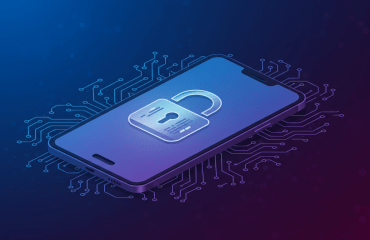advertising
We live in an age where technology plays a crucial role in personal health management. With the growing prevalence of smartphones, blood pressure monitoring has become more accessible and convenient through dedicated apps. In this article, we'll explore the best mobile blood pressure monitor apps, highlighting their features, benefits and how they can help users monitor their cardiovascular health.
The Importance of Blood Pressure Monitoring
1. Continuous Screening for Cardiovascular Health
Blood pressure is a vital indicator of cardiovascular health, and its regular monitoring is fundamental for the prevention of conditions such as hypertension, heart disease and strokes.
advertising
2. Self-knowledge and Prevention
The ability to monitor blood pressure at home gives users self-knowledge and the ability to take preventative measures, adopting healthy lifestyles and seeking medical attention when necessary.
3. Ease of Access via Mobile Devices
With the widespread availability of smartphones, blood pressure monitor apps provide a practical and efficient way of keeping track of cardiovascular health, allowing users to take regular measurements from the comfort of home.
Key Features of Blood Pressure Monitor Apps
1. Accurate and reliable measurements
Apps should provide accurate and reliable blood pressure measurements. Some may be integrated with external devices, such as blood pressure monitors connected to the cell phone.
2. History and Trends
The ability to record and track historical measurements over time is essential. This allows users to observe trends, identify patterns and share relevant information with healthcare professionals.
3. Customized Alerts and Notifications
Personalized alerts and notifications encourage consistency in monitoring. Users can receive reminders to take regular measurements and alerts for blood pressure values outside the normal range.
4. Integration with Other Health Metrics
Integration with other health data, such as physical activity, stress levels and sleep patterns, provides a holistic view of health and helps identify contributing factors.
5. Sharing Data with Healthcare Professionals
The ability to easily share data with healthcare professionals is crucial. Some applications offer export options or direct integration with electronic health records (EHR).
Main Blood Pressure Meter Applications
1. Blood Pressure Monitor - Family Lite
This app allows users to record their blood pressure measurements, monitor trends and share data with family members and healthcare professionals.
2. Heart Habit
Heart Habit offers a comprehensive approach to cardiovascular monitoring, including blood pressure measurements, heart rate and cardiovascular risk analysis.
3. iCare Health Monitor
With a user-friendly interface, iCare Health Monitor offers measurements of blood pressure, heart rate, body mass index (BMI) and other health-related parameters.
4. Qardio
The Qardio app is often associated with the brand's blood pressure monitoring devices, providing an integrated experience with advanced tracking functionalities.
5. MyTherapy
In addition to monitoring blood pressure, MyTherapy is a comprehensive tool for medication management, treatment reminders and symptom tracking.
Benefits and Impact on User Experience
1. Autonomy in Health Management
Blood pressure monitor apps offer users autonomy in managing their cardiovascular health, allowing them to monitor it regularly without relying exclusively on doctor's appointments.
2. Engagement and Personal Awareness
The ability to track and visualize blood pressure data over time promotes personal engagement and awareness, encouraging the adoption of healthy behaviors.
3. Ease of Access and User-Friendliness
With intuitive interfaces, these apps are easy to access and use, making the process of measuring blood pressure simple for users of all ages.
4. Early identification of abnormalities
Monitoring blood pressure regularly makes it possible to identify abnormalities early on, allowing for rapid interventions and reducing the risk of health complications.
Challenges and Ethical Considerations
1. Measurement accuracy
Measurement accuracy is essential for data reliability. Applications must be validated and, where possible, integrated with accurate monitoring devices.
2. Health Data Security
The security of health data is a critical concern. Applications must implement robust measures to protect users' privacy and ensure compliance with data protection regulations.
3. Cardiovascular Health Education
The apps should offer educational resources on cardiovascular health to enable users to understand the data and adopt healthier lifestyles.
The Future of Blood Pressure Meter Apps
1. Artificial Intelligence in Data Interpretation
The implementation of artificial intelligence can improve data interpretation, offering more advanced insights into users' cardiovascular health.
2. Integration with Advanced Wearable Devices
More advanced integration with wearable devices can provide continuous, real-time blood pressure measurements, offering a more dynamic view of cardiovascular health.
3. Collaboration with Health Professionals in Real Time
Applications can evolve to allow closer collaboration with healthcare professionals, enabling remote analysis of data and adjustments to treatment plans.
Conclusion
Mobile blood pressure monitor apps represent a revolution in personal cardiovascular health management. By providing regular measurements, detailed histories and advanced tracking functionalities, these apps empower users to take an active role in maintaining their health. Despite challenges related to measurement accuracy and data security, the future of these apps looks promising, with potential advances in artificial intelligence, integration with wearable devices and enhanced collaboration with healthcare professionals. Ultimately, blood pressure monitor apps are not just technological tools; they are valuable allies in the ongoing journey to promote cardiovascular health and prevent conditions that affect millions of people around the world.



